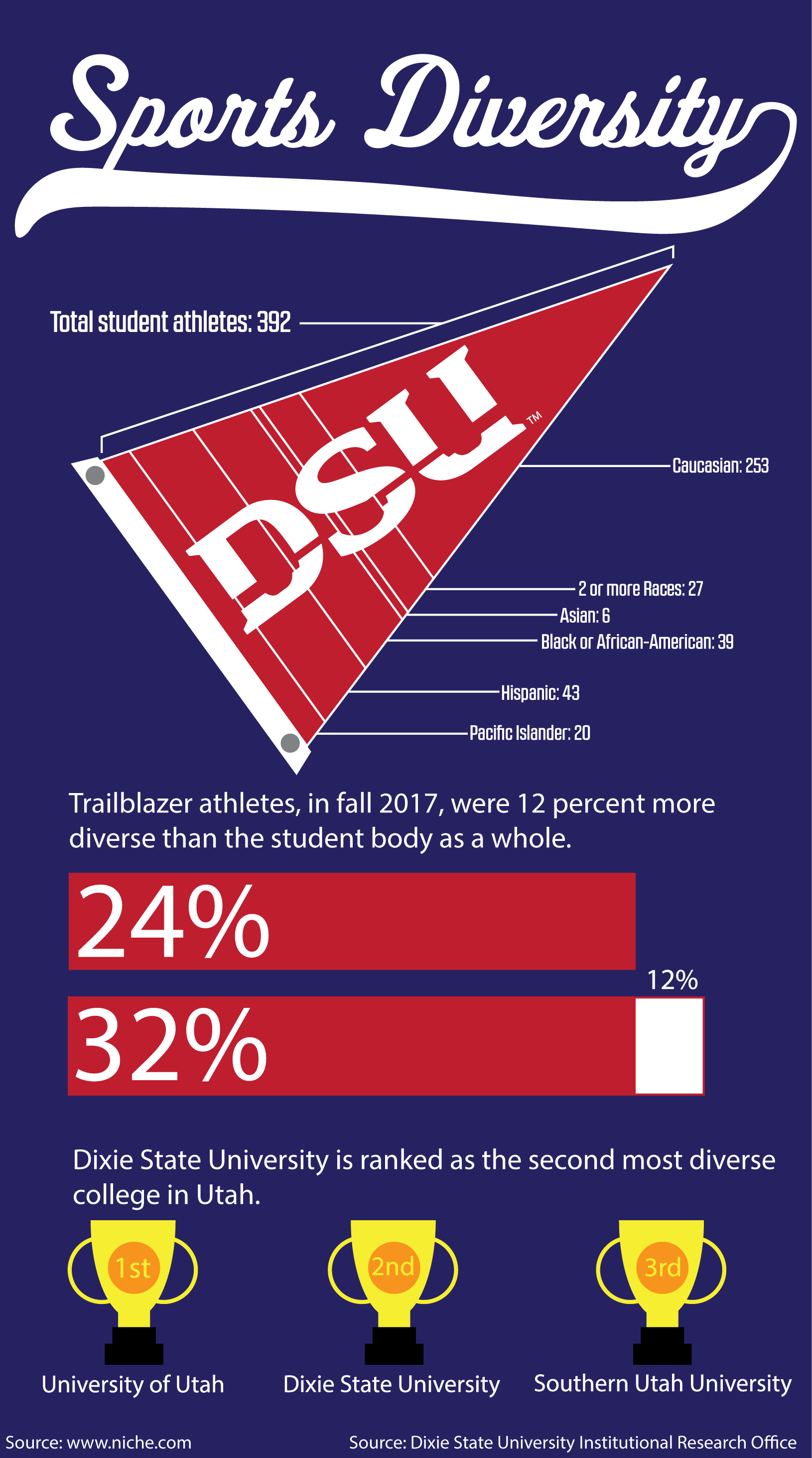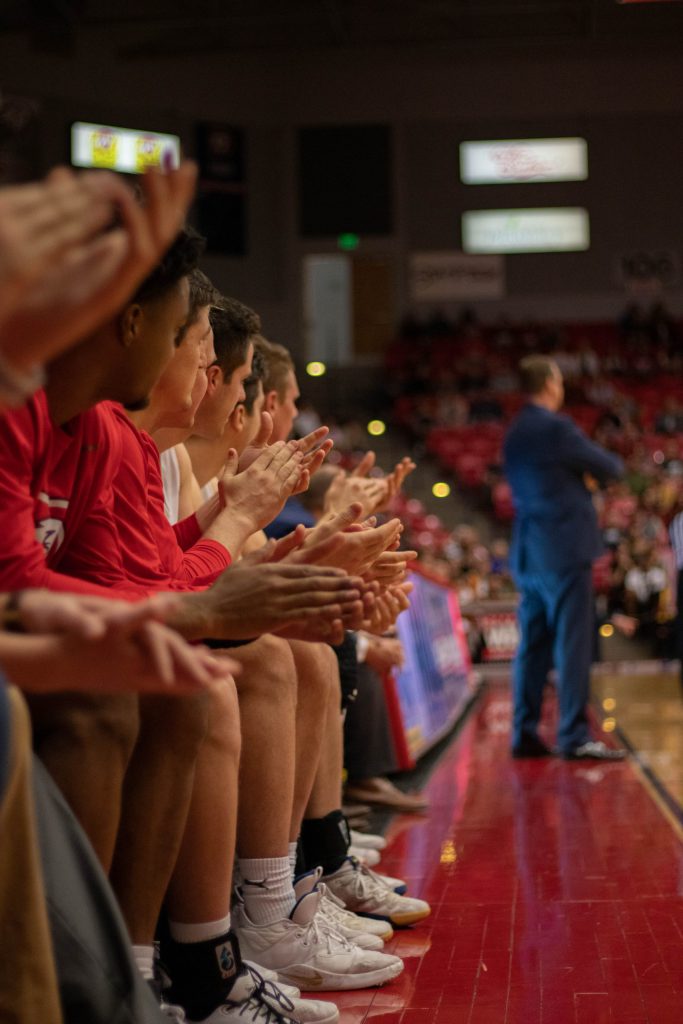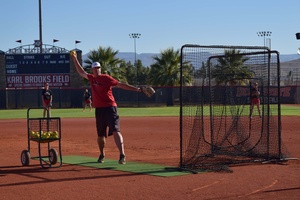The diverse faces shown throughout Dixie State University athletics do not necessarily reflect the diversity on campus.
Trailblazer athletes, in fall 2017, were 12 percent more diverse than the student body as a whole.
Andrea Brown, director of institutional research, said 64.5 percent of fall athletes were white, and DSU’s fall student population consisted of 76.5 percent white students.
Mo Eckroth, senior associate athletic director of compliance, said “The NCAA and the DSU athletic department encourage and promote diversity in the administration, coaching staffs and recruitment of student-athletes.”
Among DSU’s 392 student athletes, 234 males and 158 females, 43 are Hispanic, 39 are black, 27 are two or more races, 20 are Pacific Islander, six are Asian, three are unknown and 253 are white, Brown said.
“Having diverse people in sports can help a team in many ways,” said men’s soccer forward Ather Dawood, a senior psychology major from Tucson, Arizona. “You learn to appreciate others’ cultures, beliefs and life values. You can also learn the struggles an individual had to face throughout life, and that individual can become a role model or a symbol of leadership to teammates.”
Dawood was born in Baghdad, Iraq. He said diverse athletes face challenges other athletes don’t.
“Because of cultural differences, a diverse athlete might be misunderstood by his or her teammates,”
Dawood said, “In my case for example, I was very poor growing up, and when I had the chance to come to America and play for a collegiate soccer program, I made sure nothing was taken for granted on my part.”
When Dawood’s teammates would horseplay during practices he would get upset, and he expected them to take every practice seriously. They called him a “try-hard” or said he “didn’t know how to have fun,” but due to the struggles he faced growing up, he was hungry for success, he said.
“I think it can be hard to fit in when you’re different for sure,” said outfielder Janessa Bassett, a senior biology major from Stansbury Park. “However, the beautiful thing about sports is it’s something that no matter how diverse you are, it brings people together.”
Running back Lika Palmer, a freshman general studies major born in American Samoa and raised in Winchester, California, said diversity betters sports in general.
“Look at history, since they let minorities enter the realm of sports [they’ve improved],” Palmer said. “Other sports like football, and tracak and field minorities have dominated and made them predominantly their race. Diversity just brings better athletes.”
Palmer said he expects more diversity to translate to more wins, and he doesn’t notice prejudice in the sports he plays.
“Nowadays the majority of teams are minorities,” Palmer said. “[That’s] only in the entertaining sports though, like football and basketball, you don’t see [diverse people] playing hockey.”
Bassett said everyone comes from different upbringings and backgrounds, so to say we’re all the same would be wrong.
“I would say that all [athletes] are diverse,” Bassett said. “We’re brought together by our love for the game.”




